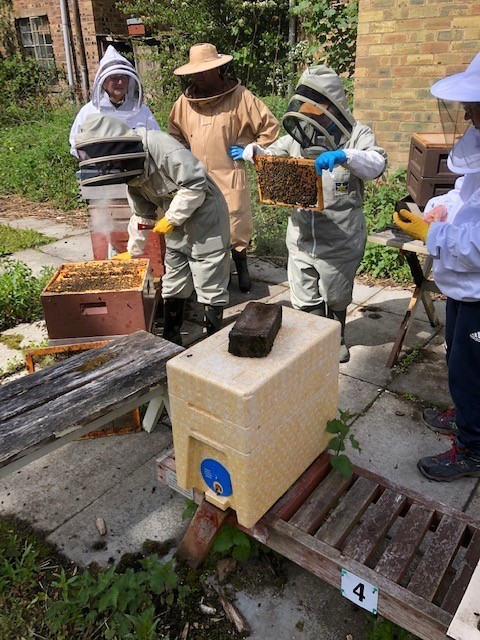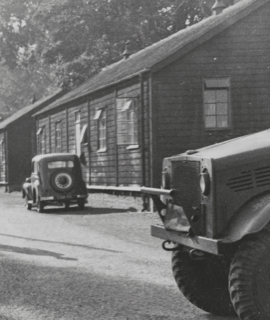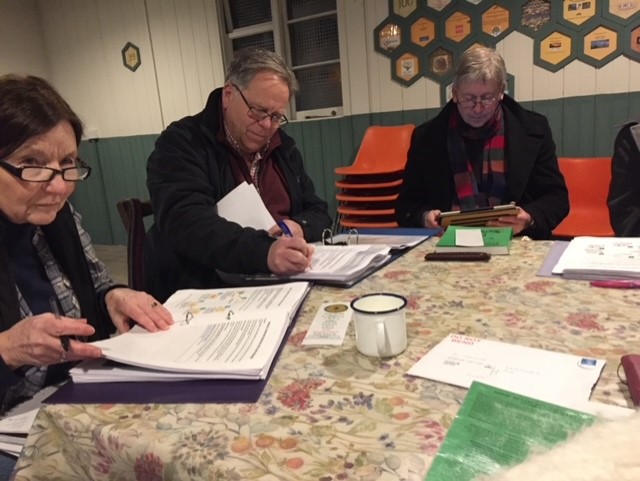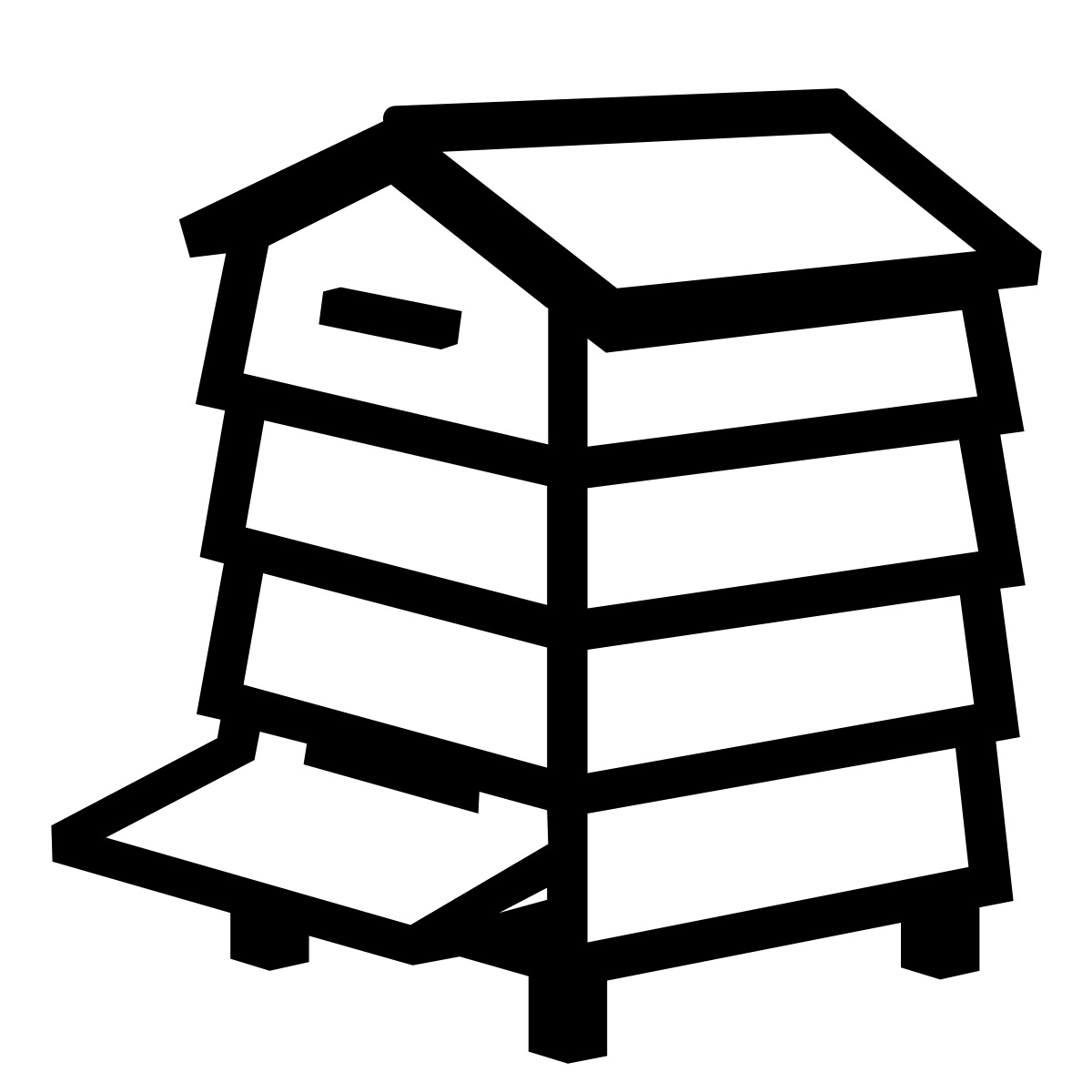
I cut my first speaker’s teeth at Newbattle Abbey in 2015. Observations at the Hive Entrance was one of the first presentations given outside my local association and it was put together without the use of PowerPoint. It was a long journey to Newbattle which is just south of Edinburgh, and it felt like a huge responsibility making what I had to say useful enough for an association paying my expenses.
I’d already been tipped off by a trustee of the Scottish Beekeepers’ Association that this was a progressive association and heavily focused on education and training so my presentation was honed, practised and polished before I set off. I relaxed in front of such a friendly audience and felt at ease in what was a new situation for me. This was before the Bee Academy building was ready for use and we were in a small sitting room in the abbey. I stood by the fireplace in a homely environment and was encouraged by lots of questions at the end. Indeed, I was invited back a year or so later. By this time, I had learned the art of making PowerPoint Presentations and my speaking career had launched. Thank you, Newbattle ABA. And thank you also to my brother- in- law, the late Richard Instrell, and pioneer of media studies as a recognised and examinable subject in the Scottish Education system. Rick showed me how to put together PowerPoint presentions and move into the 21st century with communications. I remember Rick telling me never to use Comic Sans font in a presentation because it was designed for children with dyslexia. It requires concentration to read, and, although very useful in helping children read text, it can be more difficult for some adults to read, and may also be percieved as patronising for use in contexts other than its original purpose.
During the three years of teaching the HEALTHY BEES courses over Scotland with Tony Harris, we both looked forward to visiting Newbattle. Have you ever been in a bee meeting room with a cosy woodstove, top-notch catering facilities, superb library, classroom and, outside, a secluded training apiary? Oh, and the most amazing custard creams/melting moments made by Annette Evans. They are to die for, and fairly high up the list of reasons why I like visiting Newbattle so much. The truth is though, Newbattle Beekeeper’s Association oozes enthusiasm, team spirit and endeavour and it rubs off on you.
Neil Rutherford kindly agreed to share some of the secrets of Newbattle’s successes and he has created this week’s guest blog. Thank you very much Neil.
The Newbattle Beekeepers’ Association.
The Newbattle Beekeepers’ Association (NBA), based in the grounds of Newbattle Abbey College in Midlothian, is one of the youngest associations affiliated to the Scottish Beekeepers’ Association (SBA).
In November 2012, a small group of beekeepers, led by Joyce and Peter Jack, formed the NBA after the use of a site at Lamancha near Peebles was lost to them. The NBA was offered the use of the existing apiary within Newbattle Abbey College grounds. This turned out to be mutually beneficial because the college already ran evening classes on beekeeping twice a year. These classes were of course theory based, but they provided a six-week long introduction to the basics and were excellent at providing the students with sufficient knowledge to spark further interest in beekeeping.
This is undeniably where my own initial interest started to grow, resulting in near obsession. The night classes provided an ideal recruiting ground for the NBA to sign up new members. The reason they were so effective in recruitment was because they created a different type of learning experience that focused on covering a full beekeeping season and gave equally to learning theory and gaining practical skills, and the ability to link the two. Joyce explained that this approach was developed to appeal to all types of learners and catered for those who learn best by reading and those who learn by doing. This proved to be a successful and effective formula and is quite different from most association beginner courses.
The NBA Beginner Beekeepers’ Course.
The NBA Beginner Beekeepers’ Course was the original educational offering from the NBA. The people signing up for the course are referred to as “Foster Parents” (FP) because they become responsible for looking after a colony of bees. For one year, the beginner is allocated a colony of NBA bees along with access to the apiary, and all the necessary equipment. A mentor is allocated to each FP for that first year and helps teach the handling skills and theory required for them to pass the SBA Basic Beekeeper Certificate (BBC) at the end of the course.
This is quite different from what is mostly offered by other associations where teaching might consist of group teaching for part of the season. It may consist of theory and observation during a hive inspection demonstration, unlike the NBA approach and course which gives the FP the opportunity to fully experience every part of beekeeping throughout a year. They experience the joys of spring; the colony build up and harvesting of honey, and the drudgery of cleaning equipment or counting varroa drops.
The course is complimented by a series of group talks and demonstrations. Key books are provided and the success rate is always extremely good. When I joined this course in the summer of 2014, I had just completed the six-week night class course and couldn’t wait to get started. The NBA had a membership of just over 20 people, and that year a further 19 FPs (including 2 juniors) joined the association. As some were from the same family, they were jointly mentored but since there were only 11 mentors around that time, most mentors had more than one FP to support.
I found the NBA course to be exceptionally good and I believe that all FPs achieved distinction grades in the BBC exam. If they hadn’t, they would probably have been chased around the college by Joyce!
Moving Forward with Education in NBA.
The NBA Beginner Beekeeping Course was a great starting point for the association and over the next few years it continued to attract a dozen or so new FPs every year, but the NBA was struggling with accommodation as membership grew. Along with Newbattle apiary they had access to a small uninhabitable cottage which was great for storing and cleaning equipment but was quickly becoming too small to hold meetings, demonstrations or talks in. In winter it was colder inside than it was outside!
Newbattle Abbey College management was extremely helpful and allowed us occasionally to use one of their fabulous rooms or the library. Then hospitality was extended to the use of a resident tutor’s flat with larger rooms so all members could attend meetings, and this, I believe, was the turning point for education at NBA.

Although the beginner course was extremely successful there was nothing yet in place to support further learning in a structured way. Our new facilities allowed for more activity so I became part of a group of about a dozen or so who decided that we would like to start on the SBA Modular Exams. I volunteered to lead the study group for our first module (Module 1), not because I thought I knew more than anyone else but because I thought it would suit my own methods of learning. So, the study group was added to our offerings and we held weekly meetings. In the run up to the exam diet, we used previous past papers to discuss the detail required to answer future questions. Not everyone in the group sat exams but we all seemed to find the sessions enjoyable and thought provoking.
The tutor flat allowed us to have a more permanent base where we could safely store the microscopes needed for Microscopy course and exams.
The NBA Bee Academy.
All went well until the college dropped the bombshell that they needed more space and had to convert the flat we were using into classrooms. By this time, we had a membership of 50 and a strong committee in place. We were offered the lease of another building called the “Kings Line Barracks” which was used in the second World War as an army accommodation post. It was basically a large wooden shed (see photo below) currently full from floor to ceiling with junk, and also a rabbit or two!

Plans were quickly put in place to raise funds and renovate the building. Malcom Evans, NBA Treasurer, did an outstanding job of organising the necessary fundraising to the extent that our target was exceeded. The NBA membership was magnificent in pooling all their individual skills and pulling together in a huge group effort so that the project was completed in 6 months.

When completed, we had one large meeting space containing a kitchen area with an adjacent storage room and lavatory. We called it the Bee Academy and it was to be the next big step in advancing education at NBA.


Our super new facilities also provided a feeling of stability that allowed us to focus on our education strategy which involved, firstly, the rewriting of the Association’s constitution and approval by the membership. Our number one objective was, “To advance education by providing training in the practice of beekeeping, and the production and distribution of educational information on the practice of beekeeping”.
For the first time, an Education Subcommittee was formed and led by our very own Maurice Gallagher, Professor of Microbial Science and Education at Edinburgh University. I was delighted to be part of that first committee as we set about adding skills workshops and beekeeping taster days so that what we offered became more structured. We settled on 12 FPs being the ideal size for our beginner course so that we could provide individual focused mentoring. To ensure that we had a consistent approach, we held regular mentor meetings.
We engaged with Dalkeith High School (DHS) to include one of their teachers, Mr McGlade (Ross to us) on our beginner course as a FP. However, this was a shorter fast track programme to enable him to pass his BBC in June 2020 and go on to launch the National 5 Beekeeping Certificate (Nat 5) from August that year in his school. The Nat 5 curriculum and certificate approved, by the Scottish Qualifications Authority, is available in some Scottish schools that run beekeeping programmes.
Next week you can read about what happened during the pandemic, and the development of beekeeping for young people at NBA.

That is impressive. The people skills of the organisers of the NBA must be the best.
I agree with you, Margaret. I think that there is probably a lot of hidden talent in most local Associations but that it is not always tapped. This is where Newbattle gets its strength; it networks and operates as a wider team beyond the committee whose enthusiasm ripples out to the members. Some Associations suffer from politics and the long standing panjandrum who is unwilling to step back and let new blood in.
Mister President,
I have the honor to come very respectfully to salute you for your work, your commitment to the environment, especially bees and honey production.
Indeed, I am a beekeeper, passionate about the function and dedicated to a great attachment to the protection and breeding of bees.
On this, I spare no effort to work for a good life of bees, source of honey.
Furthermore, I ask for your kindness to agree to be in continual collaboration with you and your foundation in order to be able to acquire more knowledge in this field.
Pending a favorable response, please accept, Mr. President, the expression of my most distinguished greetings.
Sir
I am merely Chair of the Education Sub-Group at Newbattle and not the Mister President but I am pleased to accept your distinguished greetings and offer you my own. Please feel free to contact me at Education@newbattlebees.org for any further collaboration.
This article was a joy to read – the fact that NBA founders understood that there are different ways in which we all learn is enlightened. Add to this, that all learning was leading towards the BBC is exceptional. I believe that all Beginners should be aimed towards the Basic Assessment (Wales & England) or BBC as a given, not an option. I am green with envy of the Barracks building. So often, our beginners become outcasts and lost to further learning and training due to the ‘culture’ within an Association – which is sad. Congrats NBA – you’ve got a blueprint there that we should all be examining and using!
Liz
Many thanks for your kind words. I hope you will enjoy the second part too which takes us through all the lockdown difficulties to where we are now.
You are absolutely correct about the culture which I believe is crucial to making our association inclusive and fun.
Congratulations for a job well done and good luck in the future. Our BKA still struggles to find a suitable place to have our own club house with room enough to house lessons etc.